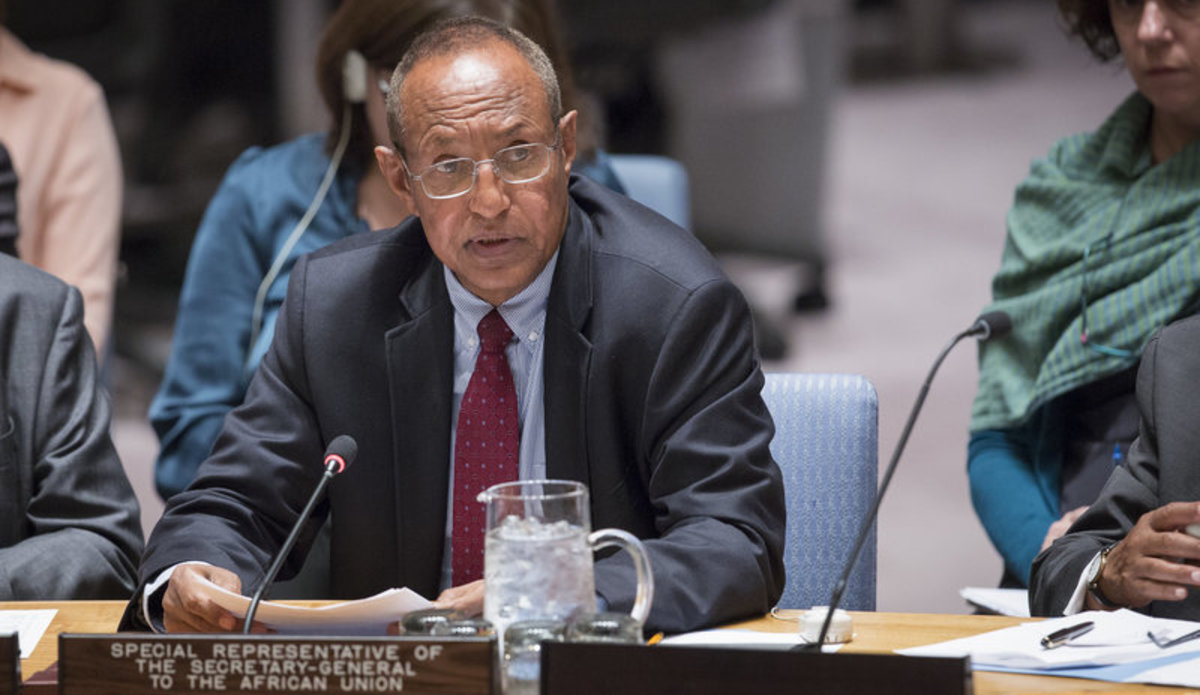Mr. President,
Members of the Security Council,
Excellencies,
Ladies and gentlemen,
Thank you for this opportunity to address the Open Debate on cooperation between the United Nations and African Union in the area of peace and security. I thank Egypt – as President of the Security Council – for bringing us together today for this timely discussion.
While much progress has been made, threats to international peace and security in Africa remain real and numerous. The findings and recommendations of recent high level reviews of UN Peace Operations and of the Peacebuilding Architecture emphasize the imperative for strengthening the partnership between the UN and regional organizations, particularly with the African Union. This is based on the recognition that no single organization can succeed on its own in addressing the challenges that confront us. The United Nations values cooperation with regional and sub-regional organizations. In the past decade, regional and sub-regional organizations have gained greater influence over conflict dynamics and regional politics. My office, the United Nations Office to the African Union is a critical bridge in supporting and strengthening the rapidly evolving cooperation and partnership between the United Nations and the African Union in peace and security.
We are already reaping the dividends of our partnership. Working closely with the African Union and its Regional Economic Communities and Mechanisms (RECs/RMs), we have made significant progress in enhancing consultations, harmonizing positions and jointly engaging in international efforts to avert open conflict and to manage ongoing ones in many parts of Africa. Increasingly, the United Nations is working hand in hand with the AU and RECs/RMs to stabilize volatile situations across the continent – from the Lake Chad Basin to Somalia, Burundi and the Sahel.
The 2016-2020 Africa Peace and Security Architecture (APSA) Roadmap emphasizes coherence and coordination across all pillars of APSA, and between the AU and its RECs/RMs, and provides a coherent approach for strengthening joint peace and security actions with the UN.
Mr. President,
In recent weeks the UN and AU acted together to de-escalate political tensions in Comoros. Concerted United Nations and the African Union engagements with the parties in Comoros show the value of having the international community speak with one voice on an issue – encouraging restraint and promoting peaceful outcomes to disputes. These efforts should continue.
In Burundi, we are working with the African Union, the East African Community (EAC) and other partners to support the parties to engage in an inclusive dialogue, the only way to resolve their differences in a sustainable manner. The United Nations Security Council and the African Union Peace and Security Council should continue to work together to encourage Burundians to find a durable solution to the crisis.
Yesterday, the UNSC and the AUPSC held their 10th annual consultations. In February, the two Councils met informally in Addis Ababa, focusing on the situation in Burundi. We commend the growing relationship between the two Councils as it helps build synergies, coordinate positions and promote the adoption of resolutions that are mutually supportive.
To enhance the value of the growing strategic partnership between our two organizations, the United Nations Secretariat is working with the African Union Commission to systematize working-level consultations, share information, support joint training and carry out joint exercises in early warning and conflict prevention As part of our efforts, we are working on a holistic approach that will elevate the partnership from ad-hoc arrangements to a more institutionalized approach to conflict prevention, management and resolution.. In that regard, we are finalizing a Joint UN-AU Framework for an Enhanced Partnership on Peace and Security.
Mr. President,
The report of the High Level Independent Panel on Peace Operations and the subsequent Report of the Secretary General call for a stronger global partnership to ensure that the Councils can draw on a more resilient and capable network of actors, while continuing to stress the need for the African Union to have access to predictable and sustainable funding. The reports also call on the UN and AU to strengthen conflict prevention and mediation capacities. The African Union has built and continues to put in place the African Peace and Security Architecture underpinned by the realization that conflicts are resolved through political solutions. Our collective challenge is to support and strengthen this architecture, particularly the African Standby Force and the African Union’s preventive diplomacy and mediation capabilities.
I am more hopeful than ever that efforts to strengthen the partnership between the African Union and the United Nations will remain critical to the continued quest for security and stability in Africa.
I wish you fruitful deliberations and look forward to the outcomes of this Open Debate and suggestions on how we can take them forward. Thank You.

